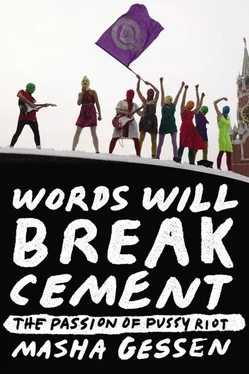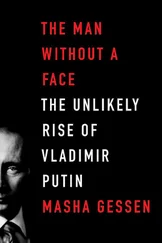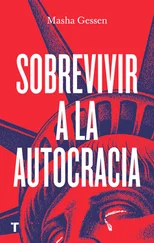“But that is a replay of the Soviet attitude, when you were only considered an accomplished poet if your books had press runs of three million,” said Petya, somewhat unfairly to Soviet-era poets.
“Say, War and Peace leaves me completely cold,” said Nadya, trying a different tack either to make herself understood or to understand what she was trying to formulate herself. “Whereas Tolstoy’s ridiculous attempts to educate and organize the masses inspire me.”
“Interesting that it was when Tolstoy tried to address the masses that he was noticed as problematic by the Church.” Petya was trying hard to hold up his end of the conversation, even if he had a difficult time grasping what Nadya meant.
“‘Being noticed’—I used to think that was a good thing,” said Nadya. She was not hearing Petya either.
I thought I might as well bring up something Nadya and I had been corresponding about: language. Pussy Riot had subverted Soviet-speak, which had perverted language. But how does one pull off that trick in a more traditional art form?
“I really feel the problems with the language in here,” said Nadya. “Yes, words being used to mean their opposites, and this is handed from the top down. And at every step, as they pass the word down, people feel that they are doing it but they still do it in order to keep the status they acquired through this use of upside-down language.”
“And this use of upside-down language is what you were referring to when you talked about sincerity in your closing statement in court?”
“I had a fit of absolutism then,” Nadya said, sounding a bit embarrassed. “I got overheated. I started talking about ‘the truth.’ Because this endless flow of lies—” Of course, talking about “the truth” in earnest would embarrass a twenty-four-year-old student of Theory.
“I always thought this was strange,” Petya chimed in. Apparently, they had not discussed Nadya’s closing statement, which had been translated into most of the world’s languages. “The truth is not a political concept at all.”
“So what that it’s not a political concept? I just wanted to be understood. I could have used constructions from contemporary philosophy that are better suited to describing this precisely, but I wanted to be understood.”
Petya persisted in his criticism, and he and I fell into an argument about whether Nadya had fallen into a modernist trap. Nadya and Gera tried singing a song about polar bears, but they could not remember the words.
“You look beautiful,” said Petya.
“It’s just the green color of the uniform,” Nadya responded. “When I danced in a green dress, that suited me too. Especially when a yellow mask used to cover my face.”
Activist Ambition sat on the second floor of a café near Chistye Prudy metro. She had no way of knowing it was the same table at which Violetta Volkova and Nikolai Polozov had met almost exactly a year earlier. She chose the table because it had a good view out the window. She was drinking wine. Activist Ambition—she did not remember exactly, but the nickname must have been coined by Petya when he recruited her for Voina near the end of that group’s active life—was in her late teens, which in Russia meant she was of drinking age. This did not change the fact that she was small and not a very experienced drinker: she felt the effects of the alcohol by the time she got to the bottom of her first glass, and on her second, she grew maudlin and sentimental. She started thinking of Pussy Riot.
No one had made her leave: she had decided herself, for all the right reasons. It was the time Pussy Riot was detained in the Metro for singing on the platform. Activist Ambition had been very clear with Kat and Nadya from the outset: she told them she only had three hours before her lecture, and unlike them she arrived not in Pussy Riot dress but in her school clothes—Kat had had to shield her while she changed. A few minutes later she was up at the top of the platform looking down. The song was over and police had surrounded the platform. She started throwing confetti at the police, and this did not make a difference. A train came: all she had to do now was climb down and jump on board the train before the police could grab her. She did—but the train did not move. Women in gray tried to force her back out through the open doors. Several men in black ran in and quickly grabbed her—and Kat and Nadya and Morzh, who she discovered were next to her—and twisted their arms behind their backs.
At the police station, while Nadya haggled with the cops and Tasya kept filming and Kat fretted that they had called her father, Activist Ambition realized something important: not only did none of them care that she had missed her lecture, but they would not have cared even if one of them had missed a lecture. They lived for the actions. She had been trying to be like them for several months. After the Feed the Road action, which had been her first, her father had stopped giving her pocket money, and she had been reduced to finding ways to ride public transit for free and to shoplifting, which she learned from Nadya and Petya and Kat. Now, at the police station, she realized that she had landed there not by accident but by design: the life they led had to include incarceration. And she was the only one in the group who cared.
They kept inviting her to actions after that, and she did help in filming one, but by the time the Cathedral of Christ the Savior happened, she learned about it from the media. While Maria, Nadya, and Kat were in hiding, they gathered several women in a safe space—it was some sort of cellar, which seemed fitting—and Activist Ambition went, of course. They talked about future actions. The feeling of being part of the group was elusive, it kept teasing her and dissipating, leaving a painful longing in its place.
Then the three women got arrested, and regret replaced the longing. She tried to help by joining in press events organized by Petya: several women would sit down in balaclavas and be interviewed on camera. The balaclavas were not foolproof: Activist Ambition’s boss recognized her and she was fired—for giving an interview to the television channel where she was interning. The worst part was, the interviews did nothing to help with the regret. She felt like an actress who had retired from the stage—she had enough irony to think of herself that way, but this did not help either. There is that moment in every action, when you have handed over your personal belongings to whoever is helping and you know exactly why you are there and you know what you are about to do and you feel that you can do anything at all and at the same time it is as though you could see yourself, so lithe, so young, so bright in every way, climbing up onto that platform—it was this moment she remembered when she brooded alone at a table on the second floor of a café overlooking a desolate autumn park.
She saw Kat. She knew Kat had been released from prison a few weeks earlier. She had been hoping to hear from her. Activist Ambition could have called Kat herself, but she wouldn’t have known what to say: she wanted Kat to need her, to call her to action. She slapped a few bills on the table and ran out of the café after the woman she thought might be Kat.
It was Kat. She was friendly in a flat way, as she always was—Activist Ambition thought Kat generally kept all her feelings and most of her thoughts inside—but she seemed happy enough to spend time talking. She talked about the lawyers. She said they had betrayed her and Nadya and Maria. She said the only way to get justice for everyone was to confront them, fight them, and expose them for the traitors they were. Activist Ambition agreed—how could she not agree—and tried to change the subject. She asked what new actions Kat was thinking about. Kat talked about the lawyers. And when Activist Ambition asked straight out—even though it seemed a little tactless and possibly illegal—what Pussy Riot was going to do, Kat talked about the lawyers.
Читать дальше












